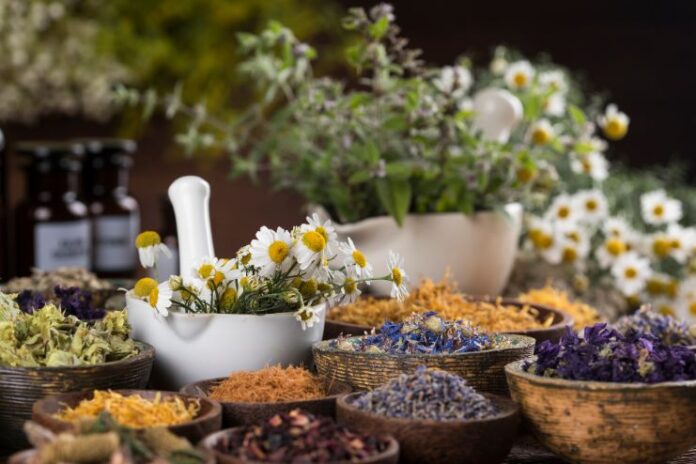Affiliate Disclaimer
Some links in this article are affiliate links. We may earn a small commission if you make a purchase through these links, at no extra cost to you. We only recommend products we find useful to our readersYour backyard can yield some of nature’s most potent cures and powerful healing remedies. In addition to adding flavor to your food, fresh herbs from the garden can be powerful natural remedies. These herbs can reduce inflammation, improve immunity, and relieve stomach problems.
The best part? You don’t need a pharmacy for common health issues if you have a garden! You can make simple yet effective home medicines with herbs like thyme, mint, basil, and rosemary. These cures are entirely chemical-free, whether you’re making herbal teas, calming balms, or natural antiseptics.
In this article, we review seven effective home remedies that use fresh herbs from your garden.
Let nature’s medicine improve your health and well-being.
Read More: Home Remedies Handbook: DIY Healing for Everyday Family Ailments
7 Herbs for Common Ailments
1. Lavender Infused Oil: Soothing Skin Elixir
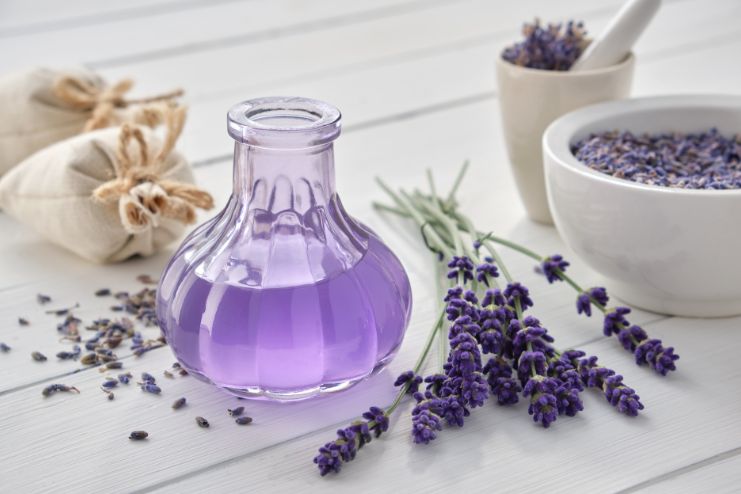
Lavender oil is a classic and beloved elixir that has stood the test of time in the cosmetics industry, where new products and trends appear virtually every day. Beauty fans have cherished it for generations due to its calming scent and skin-nurturing benefits.
It is a tried-and-trusted ally whether you’re battling skin sensitivities, seeking treatment for common skin conditions, or trying to improve your self-care routine. All skin types can benefit from the mild yet effective qualities, which provide a natural remedy for people looking to rejuvenate.
Lavender’s antioxidants help protect the skin from environmental aggressors, including pollution, smog, and damaging UV radiation. People in hectic, metropolitan environments, where contaminants regularly expose skin to premature aging, can significantly benefit from its preventive qualities.
Lavender oil is made via steam distillation from the lavender plant (Lavandula angustifolia). Its composition includes a complex mix of active ingredients, such as camphor, linalyl acetate, linalool, and other terpenes. These components are attributed to the oil’s medicinal and fragrant qualities.
Lavender Oil Massage: Mix a few drops of lavender oil with any carrier oil like coconut or almond oil. Gently massage it into your skin to relieve irritation and dryness. This treatment is perfect for a calming nighttime routine.
Soothing Bath Soak: Add 5-10 drops of lavender oil to your warm bath along with Epsom salts. This relaxing soak can reduce skin inflammation, ease muscle tension, and provide a spa-like experience at home.
Read More: 10 Curable Home Remedies To Relieve Tired Legs And Feet
2. Peppermint Tea: Digestive and Stress Relief
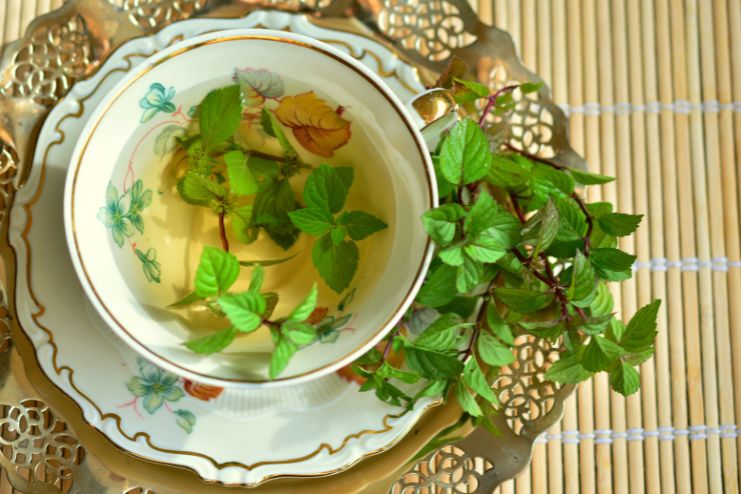
Peppermint is a well-loved herbal tea with many health advantages. It provides a stimulating and calming herbal infusion and enhances various herbal and caffeinated blends.
Peppermint tea relieves bloating, diarrhea, constipation, and other stomach and pelvic discomforts. People frequently use it for its antibacterial, antiviral, and anti-inflammatory qualities to eliminate bad breath, disease symptoms, and other issues. Due to its caffeine-free nature, peppermint tea is a soothing herbal tea choice.
It provides many health benefits, such as reducing migraines, increasing focus, and enhancing digestion. Peppermint tea may help people feel less satiated and uncomfortable, especially after large meals. Additionally, peppermint tea may help break down fats in the digestive tract, preventing slow digestion and promoting a post-meal feeling of lightness.
People with irritable bowel syndrome (IBS) may also find peppermint tea helpful. Peppermint tea may ease the cramping and pain of IBS by calming muscle spasms and decreasing bloating.
Peppermint’s calming effects also extend to the upper digestive tract, where it can aid in the relief of motion sickness, morning sickness, and mild nausea.
3. Rosemary Hair Rinse: Herbal Hair Care
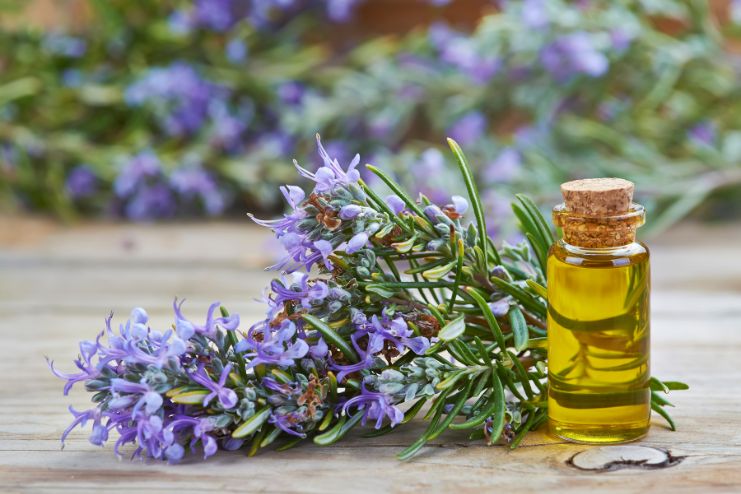
One of the most aromatic and adaptable herbs you may have is rosemary, but this fragrant shrub isn’t just for adding flavor to food. Rosemary can benefit your hair in several ways, including increased shine and growth.
Rosemary is packed with antioxidants and provides antibacterial and antifungal benefits for various hair types. The herb’s ursolic acid has anti-inflammatory properties.
Rinsing with rosemary tea is a common way to encourage hair growth. It increases blood flow to hair follicles, meaning your hair strands receive more nourishment. It can strengthen hair overall and make it look glossier over time.
Rosemary might help if your scalp is dry, sensitive, or itching. A rosemary rinse can deepen hair color over time, making gray hair less noticeable between salon visits.
You can use a rosemary tea spray, try a rosemary tea rinse, or add a drop of rosemary essential oil to your preferred shampoo. Rosemary is a hero ingredient in many natural hair care products, from detoxification tonics to scalp washes.
Rosemary Tea Spray: Boil a handful of fresh rosemary leaves in 2 cups of water for about 15 minutes. Let it cool, strain, and pour it into a spray bottle. Spritz it onto your scalp and hair daily for a refreshing boost and to promote growth.
Rosemary Tea Rinse: Prepare rosemary tea as above and let it cool. After shampooing your hair, pour the tea over your hair as a final rinse. Gently massage it into the scalp to stimulate blood circulation and nourish your hair follicles.
Read More: How to Treat Anosmia: 14 Simple Home Remedies
4. Basil Pesto for Immune Support
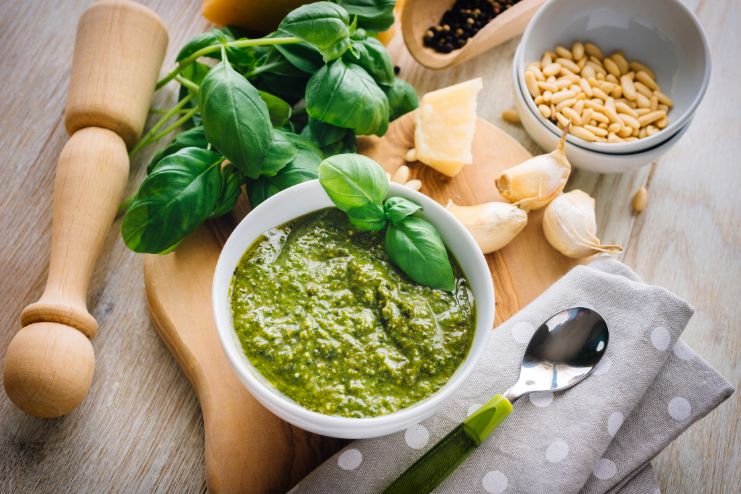
Homemade pesto sauce is best if you want absolute freshness in a jar. Everything about it shouts “green”: the color, the scent, and the taste! Pesto’s ingredients make it a fantastic immune-boosting food, even though it’s more commonly associated with summer and warmer temperatures.
Basil, high in antioxidants, antibacterial qualities, and vital vitamins like C and K, helps shield the body from infections and supports general health. Additionally, it has adaptogenic qualities that help lower inflammation and stress, which might impair immunity.
Basil pesto is nutritious and vegan-friendly. Drizzle over roasted vegetables, stir into pasta, or spread on sandwiches. You’re in for a healthy, guilt-free dinner that doesn’t compromise on flavor, regardless of how you use it. Eating well shouldn’t be monotonous!
Basil Pesto Recipe: Blend 2 cups of fresh basil leaves, 1/4 cup of pine nuts, two to three cloves of garlic, and 1/2 cup of olive oil until smooth. Add 1/4 cup of Parmesan cheese for a classic twist—season with salt and pepper to taste. For a tangy kick, squeeze in some lemon juice. Use it as a pasta sauce, sandwich spread, or veggie dip for fresh flavor and immune support.
5. Chamomile Compress: Relaxation and Skin Care

Commercial face cleansers frequently use harsh chemicals like parabens, sulfates, and artificial perfumes to accomplish their cleansing goals. These substances can strip your skin of natural oils, upset its pH balance, and cause long-term harm like dryness, irritation, and premature aging, even though they may momentarily remove oil and grime.
Chamomile, a member of the cheerful daisy family, has been used for centuries for its therapeutic and cosmetic qualities. It grows naturally throughout Europe, as well as in North America, Asia, and Australia. When consumed, it has a mildly fruity flavor, and its golden blossoms appear early in the summer.
People often use it in its dried form, as it is high in flavonoids and terpenoids. Its chamazulene content makes it especially well-known for its anti-inflammatory qualities. As a result, people frequently use it to treat various conditions, including gastrointestinal disorders, sleeplessness, menstrual cramps, and muscle soreness.
Chamomile’s skin care advantages stem from its anti-inflammatory qualities, which make it effective for a variety of physical and mental health conditions. It is also a mild astringent and a powerful antioxidant, making it a great option for skincare.
Chamomile has a relaxing effect on the mind. Without the waking effects of caffeinated black tea, a calming cup of chamomile tea will also help you fall asleep if you are having anxiety, which keeps you up at night.
How to make Chamomile Compress: Steep 2-3 chamomile tea bags or a handful of dried chamomile flowers in hot water for 10 minutes. Let it cool until warm but comfortable. Soak a clean cloth in tea, wring out the excess, and apply it to your face or any irritated skin area for 10-15 minutes. The anti-inflammatory properties will help calm redness, irritation, and puffiness, leaving your skin refreshed and relaxed.
Read More: 10 Home Remedies for Burning Sensation in Throat That Work
6. Sage Gargle for Sore Throat Relief
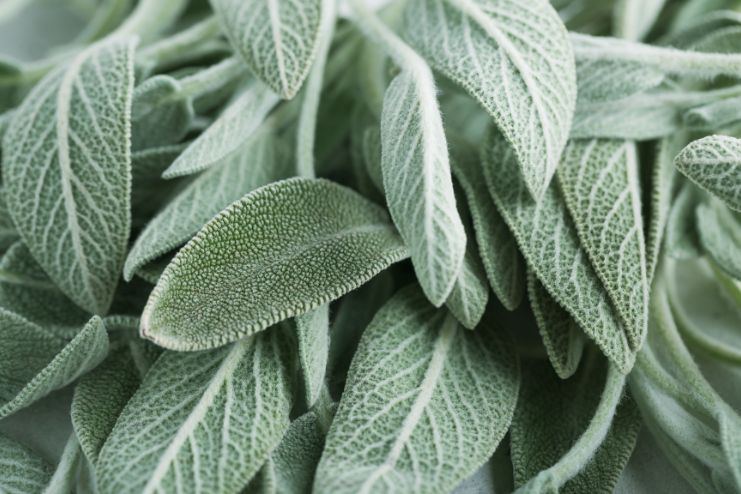
Sage is a magically powerful remedy for sore throats. If you cultivate sage in your garden, you undoubtedly know that it is useful for much more than just seasoning food. Due to its astringent, antiseptic, and antibacterial properties, it has been used for millennia to cure coughs, sore throats, and oral inflammation.
Sage tea is a systemic antibiotic and anti-inflammatory. It can also soothe anxiety and stimulate the brain. It can be used with ginger, lemon, and honey to make a soothing tea for sore throats during cold and flu season.
Sage tea can be used as a gargle to relieve sore or scratchy throats. The discomfort often disappears before you finish the first cup! The volatile oils in this tea calm mucosal membranes, so people have used it medicinally to treat mouth, tonsils, and throat inflammations.
The recommended therapeutic dosage is three to four cups of sage tea a day. Before swallowing, roll or gargle the heated tea around in your mouth to allow it to reach the back of your throat.
A spoonful of honey can improve the mixture’s ability to coat the throat and offer more relief. Frequent use of this sage gargle helps boost the body’s natural healing process, reduce inflammation, and alleviate sore throats.
Recipe: Pour one cup of boiling water over one tablespoon of dried sage leaves or two fresh sage sprigs. Let it steep for 10-15 minutes, then strain. Add a teaspoon of honey and a squeeze of lemon for extra soothing benefits. Allow it to cool to a comfortable temperature. Gargle the mixture for at least 30 seconds, then spit out. Repeat 2-3 times a day for relief.
7. Thyme-Infused Honey: Respiratory Health Booster
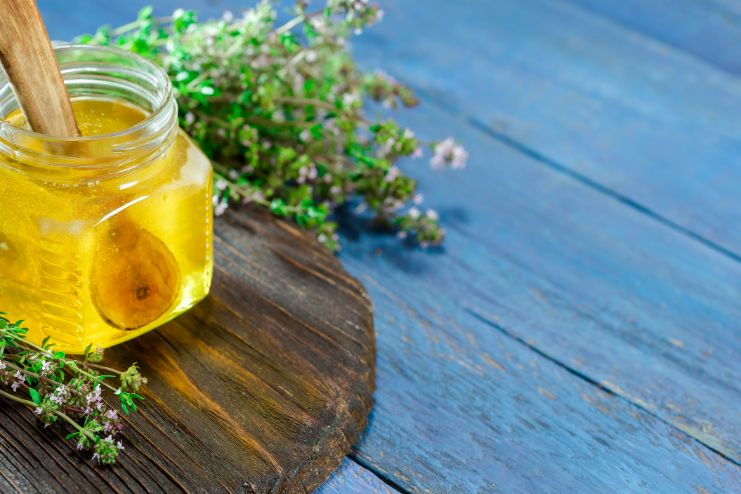
Growing garden thyme (Thymus vulgaris) is simple. Dry, relatively poor soil is ideal for its growth. An expectorant herb that aids in clearing the lungs of phlegm, thyme is well-known for its antibacterial, antispasmodic, and antimicrobial properties. Herbalists use it to treat coughs, runny noses, and upper and lower respiratory ailments.
Honey is well known for its antibacterial, antiviral, and antimicrobial qualities. It works wonders with thyme to relieve winter bug problems.
Thyme-infused honey elevates the taste of whatever you add it to, whether it’s tea, baked goods, or cocktails, and it’s a terrific method to preserve the nuances of this herb!
Thyme-infused honey is easy to make and offers a tasty method to promote throat and lung health. Take a teaspoon of honey infused with thyme straight for congestion and cough relief, or mix it with warm tea.
You can use this natural medication daily to maintain a robust and healthy respiratory system throughout the cold and flu season. Thyme-infused honey is essential to any home medicine collection due to its calming and immune-boosting qualities.
Simple Thyme-Infused Honey Recipe:
Add 4-5 fresh thyme sprigs to a small jar and cover it with 1 cup of raw honey. Ensure the thyme is fully submerged. Seal the jar and let it sit in a warm, sunny spot for about a week, shaking it gently each day. After a week, strain out the thyme leaves and store the infused honey in a clean jar. Take a teaspoon directly for sore throat relief, or mix it into tea for a soothing drink.
Read More: 12 Home Remedies For Black Eye That Help Soothe The Pain
Other Healing Herbs
With a wide range of plants with potent medicinal qualities, your backyard garden is a treasure trove of natural medicine. The following are some of the most popular and advantageous herbs that you can cultivate and utilize for home cures:
Cardamom: Several plants in the ginger family produce seed pods used to make cardamom. It is abundant in manganese and phytonutrients. Ground cardamom can help prevent cavities and bad breath, control blood pressure, alleviate diabetes symptoms, support the digestive system, and avoid cancer.
Cilantro: Flavonoids, phenolic compounds, and phytonutrients are just a few of the many medicinal qualities found in this adaptable herb. Cilantro has several health benefits, such as helping detoxify heavy metals, lowering blood sugar, improving sleep, reducing anxiety, improving heart health, supporting digestion, promoting skin health, and preventing free radical damage, which can cause various degenerative diseases.
Curry Leaf: The curry tree produces curry leaves, which are native to India and Sri Lanka. Curry leaves are a good source of iron, fiber, and vitamins A, C, and E. They can decrease cholesterol, prevent iron deficiency anemia, prevent or treat infections, fight diabetes, and improve heart health.
Oregano: Oregano is rich in antioxidants that help reduce oxidative stress and protect cells. It also improves the metabolic profile of those with high blood lipids and offers more antioxidant power per pound than blueberries or apples. Its essential oils give oregano strong antibacterial and antifungal properties, effective against harmful microbes like Giardia, Staphylococcus, and Candida. Oregano is also a good source of iron, calcium, manganese, and vitamin K.
Conclusion
Fresh garden herbs are a gift from nature. They have potent therapeutic qualities that promote general health. These herbs offer safe and efficient treatments for common illnesses, from calming the skin with lavender-infused oil to increasing immunity with basil pesto.
Sage soothes a sore throat, thyme-infused honey supports respiratory health, and chamomile soothes the skin and mind. With their anti-inflammatory, antibacterial, and immune-stimulating properties, these herbs are all excellent additions to any home remedy arsenal.
Implementing fresh herbs into your everyday routine can improve your health and well-being. Backyard herbs provide an easy, sustainable way to support the body naturally, whether utilized in teas, compresses, oils, or food preparation. Examine your garden more closely, try these treatments, and enjoy the therapeutic benefits of using fresh herbs in your home.
References
- https://www.verywellhealth.com/healing-herbs-5180997
- https://draxe.com/nutrition/top-herbs-spices-healing/
- https://vocal.media/motivation/easy-diy-lavender-oil-for-skin-and-sleep
- https://herbsathome.co/uses-of-lavender/
- https://www.verywellhealth.com/peppermint-tea-8420406
- https://www.healthline.com/nutrition/peppermint-tea
- https://lifemd.com/learn/benefits-of-peppermint-tea
- https://www.ouroilyhouse.com/rosemary-water-for-hair/
- https://www.verywellhealth.com/rosemary-water-8400870
- https://www.goodgutfeelings.com/recipes/pesto-sauce
- https://www.melbournenaturalmedicine.com.au/recipes/immune-boosting-green-pesto/
- https://www.bobbieleelicious.com/recipe/healthy-basil-pesto
- https://ediblesoundbites.com/home/2012/9/10/clean-eating-basil-pesto.html
- https://www.healthline.com/health/beauty-skin-care/chamomile-benefits-for-skin
- https://www.themaasclinic.com/recipes/sage-tea-gargle/
- https://www.studiobotanica.com/sage-tea-sore-throats/
- https://www.happyhollows.ca/product-page/sore-throat-gargle-sage-tea
- https://gillstannard.com.au/2017/03/27/thyme-infused-honey/
- https://slowlivingkitchen.com/thyme-infused-honey/
In this Article















